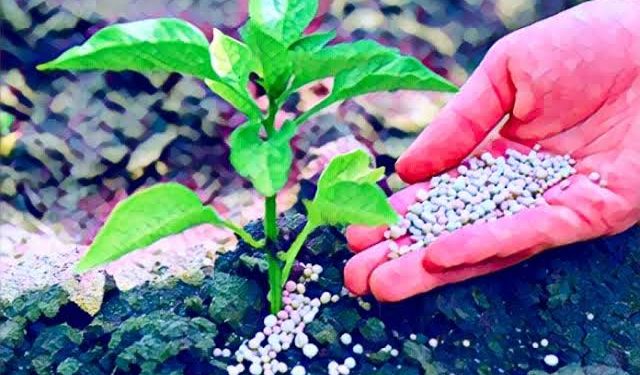Farmers in Bwari Area Council of the Federal Capital Territory are raising alarm over the rising cost of fertilizers and agro-chemicals, a development they say is threatening food production in rural communities.
In separate interviews with the News Agency of Nigeria, the farmers expressed concern that the persistent increase in prices is undermining efforts to boost food sufficiency. They warned that smallholder farmers, who make up the majority of producers, are the hardest hit.
A farmer from Baran-goni community explained that the price of Golden Urea and NPK, which sold for between ₦35,000 and ₦37,000 last year, now costs around ₦47,000 per bag. He noted that NPK 20.10.10 is the only grade still available at a lower price of ₦25,000, but other types are beyond the reach of average farmers.
According to him, the sharp rise is not limited to fertilizers alone. Pesticides and agrochemicals have also become significantly more expensive, further compounding production challenges. He added that the cost of fertilizers is now higher than the price of a bag of maize, leaving farmers unable to recover their investments. He linked the situation to the high cost of fuel, which plays a key role in fertilizer production, and urged the government to make inputs more affordable.
From Sabon-Gari community, another farmer shared that many producers are turning to organic options such as poultry and cow dung as cheaper alternatives. A bag of poultry manure now costs between ₦5,000 and ₦6,000, but demand is high, forcing farmers to book ahead. He explained that while some farms require up to 20 bags of industrial fertilizers, many smallholders can only afford to use organic manure on part of their fields. He called on the government to provide free or subsidized inputs and soft loans to help farmers sustain production.
An agricultural expert added perspective, noting that both organic and industrial fertilizers serve different purposes. Organic manure, though lower in nutrient concentration, improves soil structure, water retention, and long-term fertility, while industrial fertilizers supply concentrated nutrients for immediate crop absorption. However, he cautioned that excessive reliance on industrial fertilizers could harm soil quality over time.
He stressed that although organic manure is more affordable, it is labour-intensive to apply, while industrial fertilizers are easier to use but increasingly unaffordable. He urged policymakers and stakeholders to prioritize agriculture and find lasting solutions to the rising cost of inputs, warning that neglecting farmers’ concerns could threaten food security in the long run.










